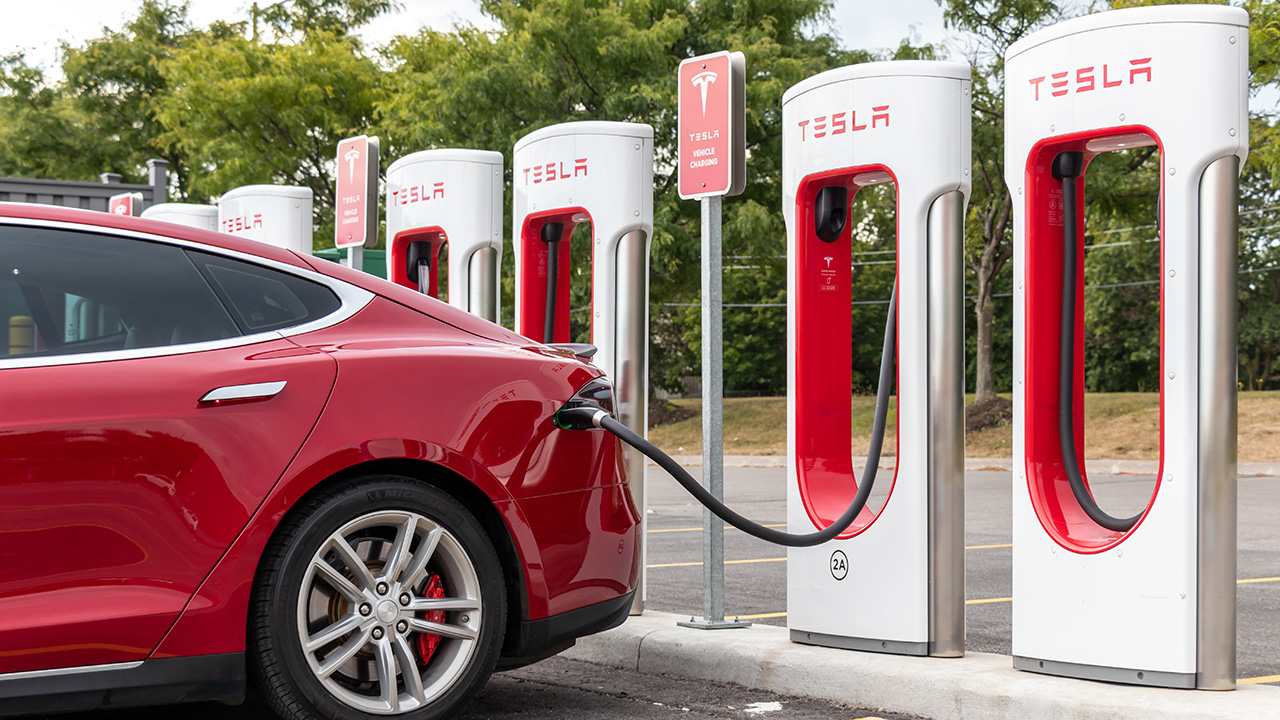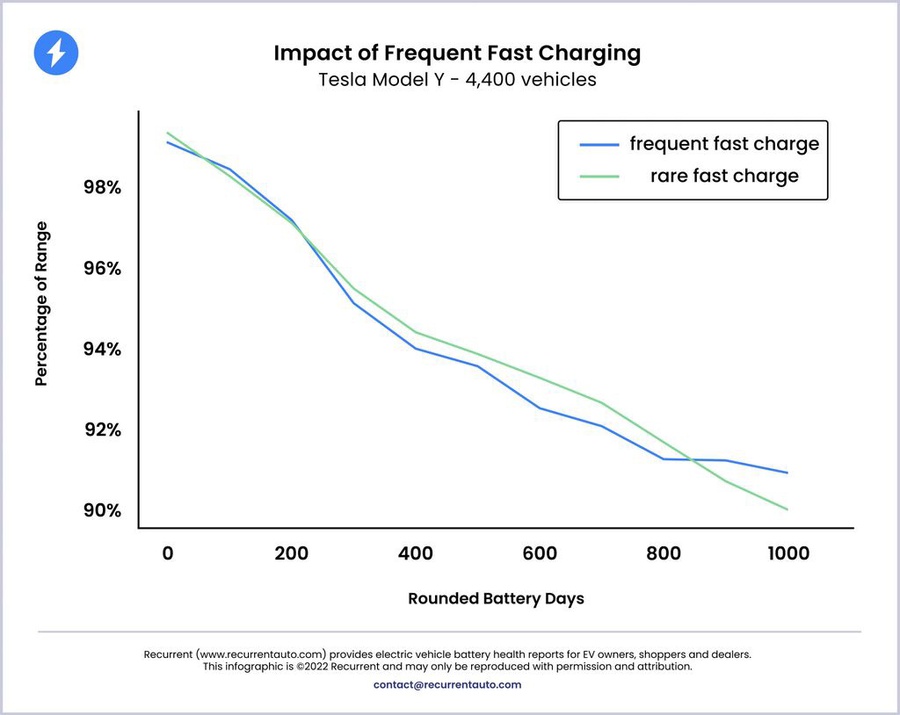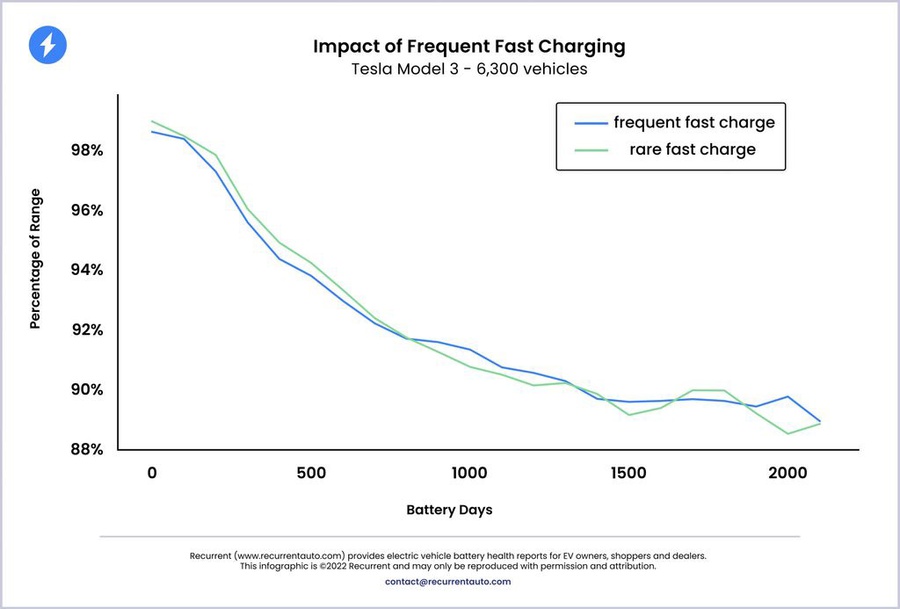A new study by Recurring Auto, which examined charging records from more than 12,500 Tesla cars in the U.S., reveals that the decline in battery range is statistically comparable to that of AC charging.
Recurring Auto, a firm specializing in EV and battery analytics, looked at vehicles that used fast charging for at least 90% of their charging cycles and compared them to vehicles that used fast charging less than 10% of the time. The findings indicate little or no significant difference between the two types of charging.
The accompanying graphs display the original battery range as indicated on the dashboards of Tesla Model 3 and Model Y vehicles, over a span of days.
While the choice between DC and AC charging is a factor, it's not the only one that influences battery longevity. Other elements, such as extreme weather conditions and the state of charge, also play a significant role.
However, the study by Recurrent confirms that advanced thermal, voltage, and battery management systems put in place by EV manufacturers effectively shield the batteries from harm, even with regular use of fast chargers.
For maximizing battery lifespan, it's crucial to use the preconditioning feature, especially in severe hot or cold weather. This adjusts the battery cells to an ideal temperature before starting the charging process. Additionally, it's advisable to avoid fast charging when the battery is at extremely low or high states of charge, as this could increase battery resistance and place extra stress on the system.
Source: InsideEVs



